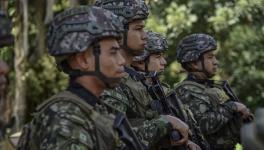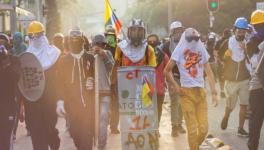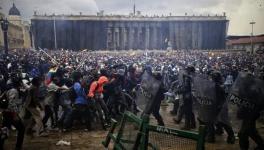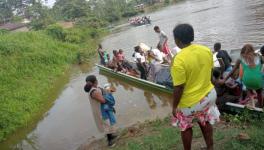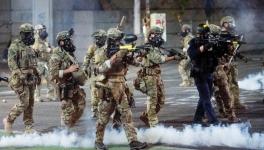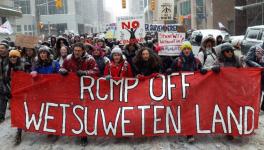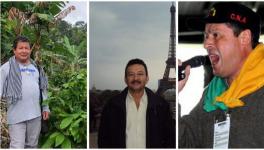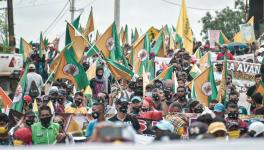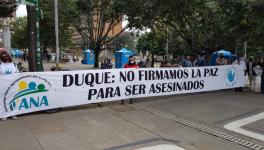Colombian Organisations Denounce Massacre of Eight Indigenous Guards
Indigenous guard of CRIC. Photo: CRIC
Human rights and Indigenous organizations in Colombia condemned massacre of eight members of the Indigenous Guard on March 21 in an explosion at the Indigenous reservation, Papitas, in the Dagua municipality. The guards belonged to the Waunan, Nasa y Embera Indigenous groups. Three guards were severely injured in the incident.
The massacre occurred while members of the Indigenous Guard, who were in charge of logistics of the ‘Minga for the defense of life, territory, democracy, justice and peace’ in their zone, were meeting to discuss the logistics for the intensifying of the mobilisation in Delfina, Valle del Cauca. An estimated five thousand Indigenous people were projected to arrive at Delfina in order to join the mobilisation and Indigenous authorities had decided that it was necessary to find another space in the zone to accommodate all the participants.
The Human Rights spokesperson of the Regional Indigenous Organisation of Valle del Cauca (ORIVAC) said that someone had launched an explosive device at the house where the Indigenous guards were meeting. The human rights commissions of ORIVAC, the Regional Indigenous Council of Cauca (CRIC), as well as several international organisations, are currently participating in a verification mission in order to identify the bodies and determine the the damage.
The organisations have demanded that the national government investigate the incident that took place in the midst of a mobilisation that has been met with heavy state repression. They also demanded that the government respect international human rights and guarantee the exercise of the fundamental right to peaceful protest.
The massacre occurs in the context of a massive mobilisation in the south-west region of Colombia where tens of thousands of people have been participating in the Minga since March 10. Indigenous and peasant communities have been organising diverse actions as part of the Minga to demand that president Ivan Duque go to Cauca to meet with the organisations and discuss their demands.
Their demands are diverse. The south-west region of Colombia has a history of prolonged and combative mobilisations, which have led to agreements with the Colombian state, many of which are violated and ignored. One of the demands of the current Minga is that the government respect these demands, in addition to the pressing need to address the systematic violence in the territories. The communities are against laws and proposals such as the National Development Plan of the government which go against the territorial rights of the communities. They have also opposed the intensifying of mining and energy projects in the territories, which often violates the ancestral rights of the ethnic communities and brings further suffering to them.
Since the Minga began on March 10, the various mobilisations faced fierce repression from the state forces, specifically the Mobile Anti-Disturbance Squad (ESMAD). On March 14, the ESMAD used disproportionate force and attacked peasant communities of the Cajibío municipality during a peaceful protest on the Pan-American Highway. In another region in the El Pital town in Ancestral Sath Tama Kiwe territory, there were reports of artillery helicopters hovering above the area where the mobilization for the Minga was being held.
On March 16, regional and national human rights and social organisations condemned the attack by ESMAD units on one of the campsites of the Minga at the Cairo and El Túnel towns in the Cajibío municipality. The ESMAD units completely destroyed the camp, injuring a number of people.
While further information around the massacre has yet to emerge, what is known is that the main protagonists of this mobilisation, the Indigenous communities of the south-west were the victims in yet another act of violence and repression against their just struggle.
Get the latest reports & analysis with people's perspective on Protests, movements & deep analytical videos, discussions of the current affairs in your Telegram app. Subscribe to NewsClick's Telegram channel & get Real-Time updates on stories, as they get published on our website.









